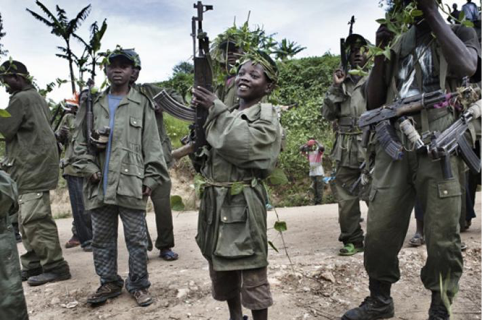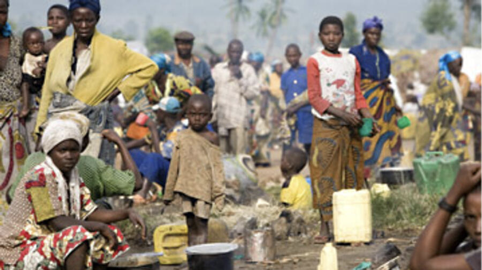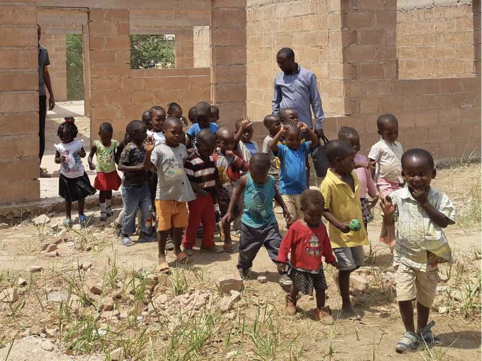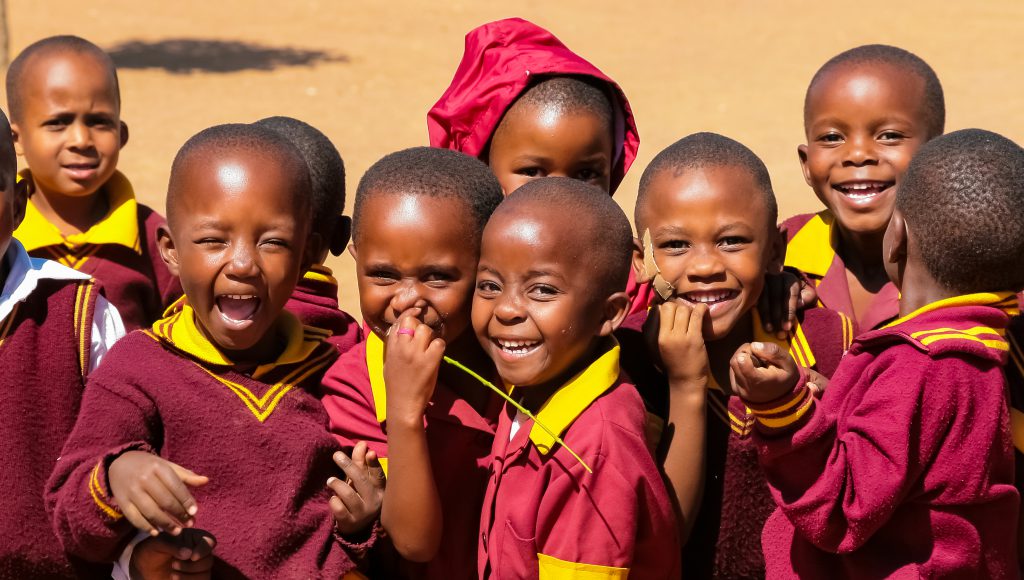Become a member
Being a member of One More Chance means being part of a group
of caring people.
When selfless, like-minded people come together, great things happen. Whether it is to facilitate medical examinations, feed the hungry, pay for schooling for children of poor or orphaned families, or participate in reconstruction efforts after a disaster or war, they are ready and willing to intervene wherever there is a need.
Our goal is to improve the quality of life for those in need by providing
By dedicating 100% of your donation to grants and humanitarian assistance programs, your support of One More Chance Association provides the means to serve in support of those most in need. While those who benefit from your support may never know about your generosity, One More Chance and our beneficiaries are extremely grateful.
Our goal is to improve the quality of life for those in need by providing
Please complete your donation below. For the poor, sick or orphaned children to pay for their medical care or the expenses for the school of the children or women or the family abandoned in the Society because of their critical situation. Click here.
Our goal is to improve the quality of life for those in need by providing
One More Chance Association is committed to giving hope to those who have nothing or nowhere in their lives, our commitments are in relation to your financial participation and partners as we work on a non-profit basis.
Our goal is to improve the quality of life for those in need by providing
Girls in wartime are the ones who become sex slaves, mothers, domestic helpers, soldiers.
Direct violence
The testimony of a 13 year old girl (Congo DRC)
Our goal is to improve the quality of life for those in need by providing
“The assailants tied me up because I was struggling. I was raped by five of them until one of the commanders who knew my father intervened. Then he took me to his house and I became his wife. I agreed because I was afraid and I was afraid that he would treat me like the others.” This is the testimony of a 14-year-old girl from Sudan, collected in a focus group jointly organized by the United Nations Children’s Fund (UNICEF) and the Office of the Special Representative of the Secretary-General for Children and Armed Conflict (OSRSG/ CAAC), and included in the Machel Report.
Our goal is to improve the quality of life for those in need by providing
This story shows how vulnerable girls are in armed conflict. They can in fact be affected by war in five different ways. First, they are often directly affected by violence: killed, mutilated or raped, they are victims of war crimes. Second, they can be recruited and used to fight on the battlefield. Third, as refugees and internally displaced persons, they often live in unsafe environments and are often deprived of basic facilities. Fourth, they are often trafficked and exploited because of their vulnerability. Finally, when they are orphans, some of them end up in the
They have to find a job to support their siblings.
I met Beatrice Kantengwa. Her house was destroyed in an air raid that killed most of her family and her school was ransacked by insurgents who are against girls’ education. But she is determined to continue her studies to become a teacher.
The girl soldiers
Girls are increasingly being recruited as child soldiers in the armed forces. Some of them are kidnapped and have to fulfill the double role of sex slave and child soldier. This was especially true during the wars in Sudan, Congo (DRC). In other cases, girls join the armed forces for a variety of reasons: they are indoctrinated, they want to escape their families, or they have no other choice for survival. In Sudan, I met Maria, a girl who was a child soldier. She had joined the rebel groups because her brothers had done so before her. A victim of domestic violence, she had run away from home. She fought on the side of the rebels and was captured during a confrontation. Today, she feels lost. She does not want to return home, but she does not have the education or skills to live on her own. When I met her, she had been placed with a family. She felt that boys were afraid of her because of her past. She also told me that many of the girls who ended up leaving the movement became prostitutes to survive.
Our goal is to improve the quality of life for those in need by providing

Our goal is to improve the quality of life for those in need by providing
Displaced persons
Worldwide, 80% of refugees and internally displaced persons are women and children. Displaced children are perhaps one of the most vulnerable groups. In many parts of the world, they are separated from their families during their flight and become orphans overnight. And once in the camps, they are often recruited by the armed forces. Displaced children also suffer from high rates of malnutrition and have limited access to medical services. Many of the girls are victims of violence inside the camp or when they leave the camp to collect firewood or perform other necessary tasks. For advocates for the rights of displaced children, the first priority is to ensure their safety. Their goal is to ensure that children are safe, that they are protected from sexual abuse and recruitment, and that there are dedicated spaces for children in the camp. The second priority is education. Recently, One More Chance Association and non-governmental organizations (NGOs) have joined together to advocate for education to be an integral part of the emergency response and not seen as an afterthought. This was one of the key messages of the March 2022 National Assembly debate on Education in Emergencies. It is important to provide schools and playgrounds for the children when the camp is set up and the families are settled. This allows children living in the camps to resume a normal life in a structured environment.
Our goal is to improve the quality of life for those in need by providing

Our goal is to improve the quality of life for those in need by providing
Trafficking and exploitation
Another concern for girls in armed conflict is sexual trafficking and exploitation. Internationally, commentators refer to trafficking as a phenomenon that occurs in “waves,” with certain groups being trafficked in considerable proportions at any given time. These waves often occur in areas of armed conflict; women flee in large numbers and resort to prostitution to ensure their survival. They are exploited by international groups of ruthless criminals. A great deal of evidence has been gathered and significant efforts have been made over the past twenty years to address the problem. However, the problem persists on the ground. UN peacekeepers have been implicated in cases of sexual abuse. The UN Department of Peacekeeping Operations has made this a priority by instituting a zero-tolerance policy, code of conduct and disciplinary measures to stop this type of behavior and to ensure that peacekeepers are only seen as protectors.
Our goal is to improve the quality of life for those in need by providing
The orphans
Because of the war, children become orphans overnight. In many parts of the world, children become heads of households and must provide for themselves and their siblings. This is especially true for girls who have to take on the role of parents. Children whose parents have died often live in deplorable conditions, in houses with water leaking from the roof, if there is one at all. They sleep together with torn plastic bags as blankets and cook with rusty cans and broken dishes. Vulnerable, they are more prone to disease. Their situation is dramatic. One More Chance Association is looking for ways to give these children a future without placing them in centers. They want these children to stay in the community and be cared for by the community. Through plans to find foster families and adoptive mothers, One More Chance Association hopes to give children a chance to reclaim their family lives.
Our goal is to improve the quality of life for those in need by providing

Our goal is to improve the quality of life for those in need by providing
The international tribunal
How has the international community responded to the suffering of girls in situations of armed conflict? Things have started to change recently, especially in the fight against impunity. The first important step for children is the creation of international tribunals that bring to justice those responsible for crimes. The cases referred to the Criminal Tribunals for the former Yugoslavia and for Rwanda have created a framework of international jurisprudence that will be useful in the future. Women have obtained justice, and it is always difficult to measure the deterrent effect of sanctions. Recently, the Special Court for Sudan convicted several leaders of the Revolutionary United Front on 16 counts of war crimes and crimes against humanity, including the recruitment and enlistment of children under the age of 15 into the armed forces. The creation of the International Criminal Court is the culmination of this process. The first case, the Eddy Manda case, concerned the recruitment and use of children as child soldiers. In this case, our office submitted a Michael Lay brief to the court, asking that the protection of the girls be ensured. We are working to ensure that abducted girls in various roles in the camps have legal protection from forced recruitment, employment and participation in hostilities. We hope to appear in court to defend this point of view so that the suffering of the girls does not remain invisible.
Our goal is to improve the quality of life for those in need by providing
Participation
With regard to children in armed conflict, another mechanism has been implemented to end impunity: Security Council Resolution 1612, which was adopted in 2005. It established a Working Group on Children and Armed Conflict and set up a monitoring and reporting mechanism within a country-level Working Group composed of all UN agencies that will be responsible for reporting on violations. This group is chaired by the Resident Coordinator or Special Representative and often co-chaired by UNICEF. It is through this mechanism that OSRSG/CAAC receives bi-monthly reports on grave violations against children in conflict zones. The Security Council is informed by the Secretary-General’s Annual Report, which lists parties to conflict that recruit and use child soldiers. Resolution 1612 recommends targeted measures against those who persistently violate the rights of children. We hope that in 2009 these measures will be expanded beyond the recruitment and use of child soldiers to include sexual violence against children, so that those who use sexual violence in armed conflict are shamed and punished. Having received the full support of the UN system, we hope that member states, especially those on the Security Council, will help us fulfill this promise.
In a world where violence against women and children is widespread, we may be cynical about these measures that the international community has begun to take to combat impunity, but their effects should not be underestimated. I was recently in the Central African Republic and met three generations of women from one family who were raped when Jean-Pierre Bemba’s troops attacked the capital, Bangui. They were about to leave for The Hague to testify against him. Their joy at being able to obtain justice and their gratitude for what was done convinced me that we were on the right path. Serious violations, war crimes and crimes against humanity must be taken seriously to end the culture of impunity that often prevails in times of war.
Our goal is to improve the quality of life for those in need by providing
Reintegration
The field of rehabilitation and reintegration is another area where the community can help. Reintegration of war-affected children is an important task facing governments, One More Chance Association and NGOs working in this field. The Paris Principles not only provide a framework on how to reintegrate children associated with armed groups, but also a guide for the reintegration of all children. Child-focused programs must take as their starting point community-focused programs that work with children while including family and community development. And some children need special attention. Studies show that children who have been forced to commit horrific crimes and those who have been sexually abused require special attention. Girls and boys have different needs. Treating children as important people while developing the community holistically is the only reliable way forward.
Our goal is to improve the quality of life for those in need by providing
Finally, what about the psychological cost that war has on children? One More Chance Association went to Congo (DRC) to a class of nine year old girls who were taking a drawing class. We were looking at each other’s drawings when we came across the one of enemies. She had drawn a house and explained that the two people in the house were her mother and herself. Above the house, she had drawn an object that I understood to be a combat helicopter. On the left, there was a huge tank and on the right, a soldier. They were all shooting at the house. Her sad, dark eyes in her beautiful face told the rest. If facing the daily reality of war is a difficult task for all of our colleagues working in this field, rebuilding the shattered lives of children is even more difficult. The challenge of the moment is to give these children back their smiles and their humanity and to help them find a meaning to their lives.
Our goal is to improve the quality of life for those in need by providing
Our goal is to improve the quality of life for those in need by providing


